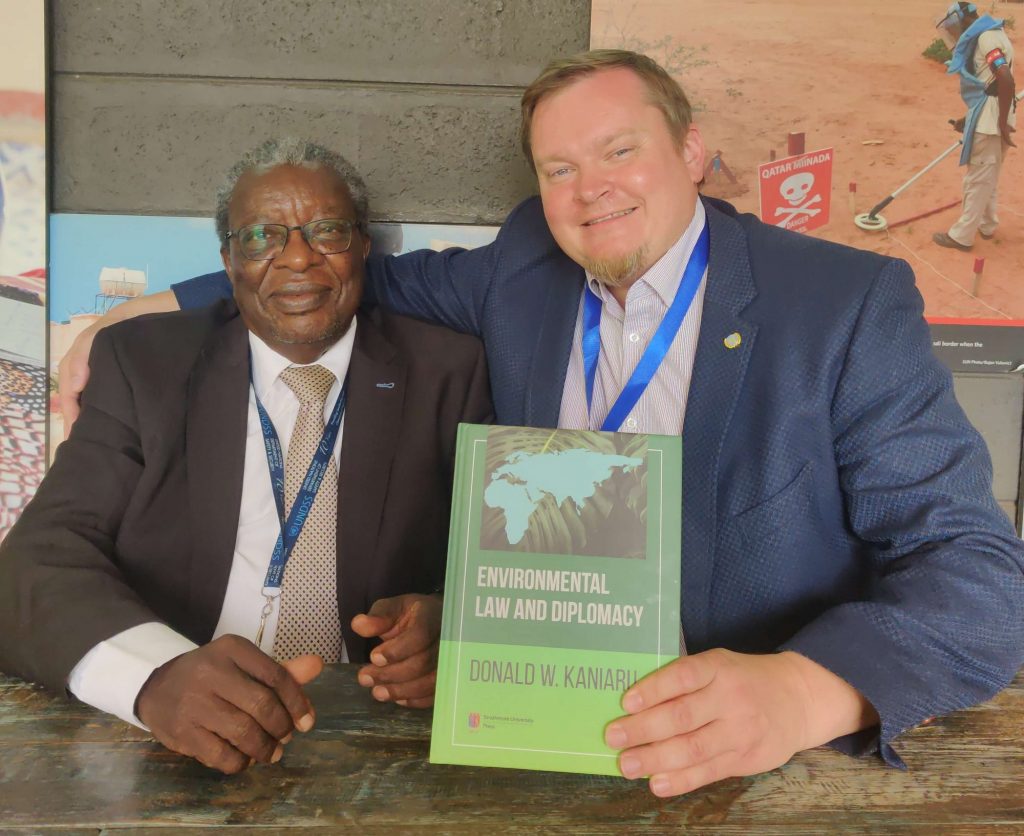ICEL took part in the third session of negotiations on an international treaty on plastic pollution
Experts from ICEL took part in the third meeting of the Intergovernmental Negotiating Committee (IGN-3) to develop an international treaty to combat plastic pollution under the auspices of UNEP, held from November 13 to 19 in Nairobi, Kenya.
Substantive discussions were held on the basis of the zero draft of the future instrument published in September 2023 within three contact groups.
The mandate of the first group was to review sections I (objectives) and II (key aspects of combating plastic pollution) of the zero project. Much attention has been paid to the scope of the future agreement from a plastics life cycle perspective. Most countries noted that the scope of application is clearly defined in UNEA Resolution 5/14, while states have different approaches to the interpretation of the key concept of the full life cycle enshrined in the Resolution: some states consider it to cover the stages from created product to waste, and others propose starting regulation from the moment raw materials are extracted and polymers are produced. In addition, several countries noted that polymers are not part of the mandate of the Resolution, which specifically addresses pollution rather than regulation of plastics production.
Anti-pollution measures have also generated much controversy, most notably in relation to proposals to establish restrictions on the production of certain categories of plastic products, requirements for product packaging, elimination of ongoing pollution, a system for monitoring and disclosing information about the chemical composition of all types of plastics and plastic products throughout life-cycle.
The second group discussed measures and means of implementing the future instrument, including financing and capacity building. The main disagreements arose regarding financial support: developed countries were more often in favor of using the existing financial mechanism, while developing countries were in favor of creating a new one.
In terms of progress tracking and reporting, many countries have advocated for greater chemical disclosure of polymer and product data, as well as mandatory reporting by companies.
Work on the third group, unlike the other two, was first launched in Nairobi. The main task of the group was to discuss elements of the treaty not covered in previous sessions. During the intersessional period, countries sent their proposals to the Secretariat, which were summarized in a summary report. When developing this block, especially in terms of the preamble and final provisions of the future instrument, it was repeatedly noted that the experience of existing international instruments for the control of chemicals, including the Minamata, Stockholm, Basel and Rotterdam conventions, should be taken into account. The main problematic issue of this group was the need to develop a clear conceptual framework and uniform use of terminology.
In the context of institutional arrangements, all states agreed on the Conference of the Parties as the main body that will make decisions on the implementation of the future treaty. At the same time, a number of countries noted that the powers of the parent body should be discussed in detail not at meetings of the negotiating committee, but after the adoption of the treaty. Proposals were also made for the necessary working bodies, including a scientific body, a compliance committee, a mechanism for collecting data on best practices, an implementation committee, and a finance committee for developing countries.
In addition, the third group considered issues requiring intersessional work following the meetings of all three contact groups, but the parties were unable to reach a common decision on the format and elements of such work
Proposals from countries will be reflected in the updated zero draft treaty, the text of which will be prepared by the Secretariat by the end of 2023. The revised draft is expected to be used as the basis for discussions at the next meeting of the Intergovernmental Negotiating Committee in Canada in April 2024.
Proposals from countries will be reflected in the updated zero draft treaty, the text of which will be prepared by the Secretariat by the end of 2023. The revised draft is expected to be used as the basis for discussions at the next meeting of the Intergovernmental Negotiating Committee in Canada in April 2024.
By: Prof. Alexander Solntsev
Deputy Head of the Department of International Law,
Peoples Friendship University of Russia, PhD







